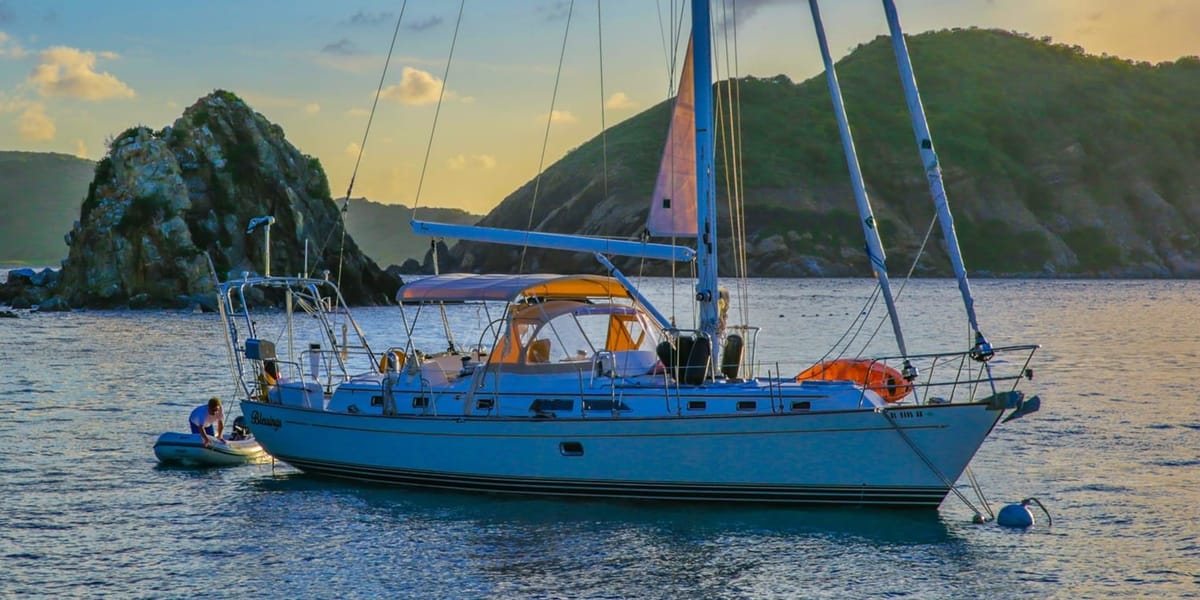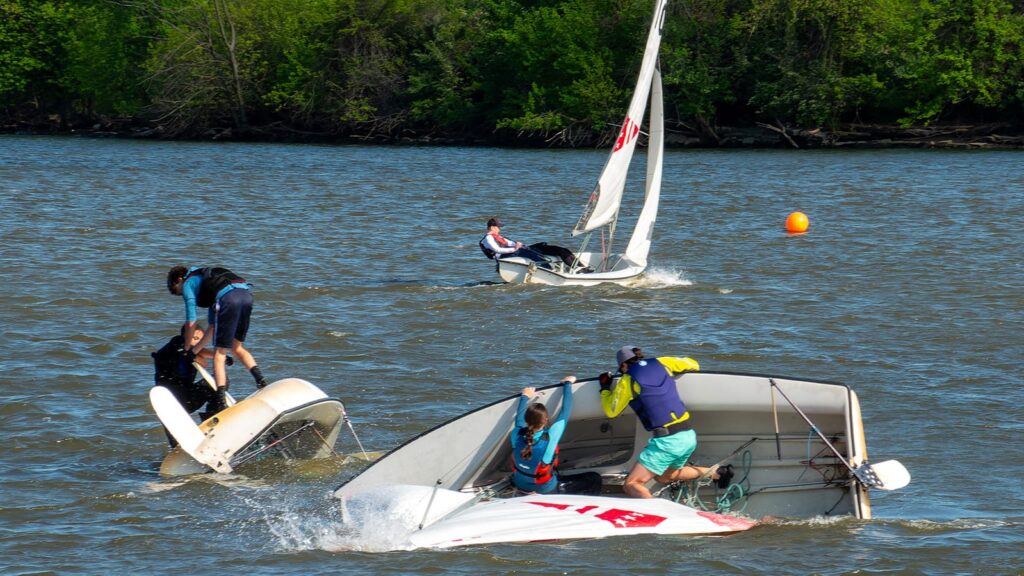So you’ve checked out of ASA 101, 103 and you’re in the middle of completing 104. You know you like this sailing stuff and you also know that you are going to buy a boat of your own. Yachtworld.com has been bookmarked and your lunch breaks are spent scrolling, clicking and dreaming. We understand. Here are a few things to keep in mind as you consider buying a sailboat.
- What does the future hold?
So you are not a time traveler and not much of a psychic, but you probably have an idea of what the future might have in store. Think about that as you assess your purchase. Will you soon outgrow the boat as family size increases or will you have too much boat as your weary old body goes on strike? Is your job likely to get more consuming or less? Is that kid of yours going to keep doing this with you or is the writing on the wall for another worthy pursuit? Boats usually stick around for a while, they don’t change but you do. Grab that crystal ball and buy the perfect boat – one that you’ll use year after year.
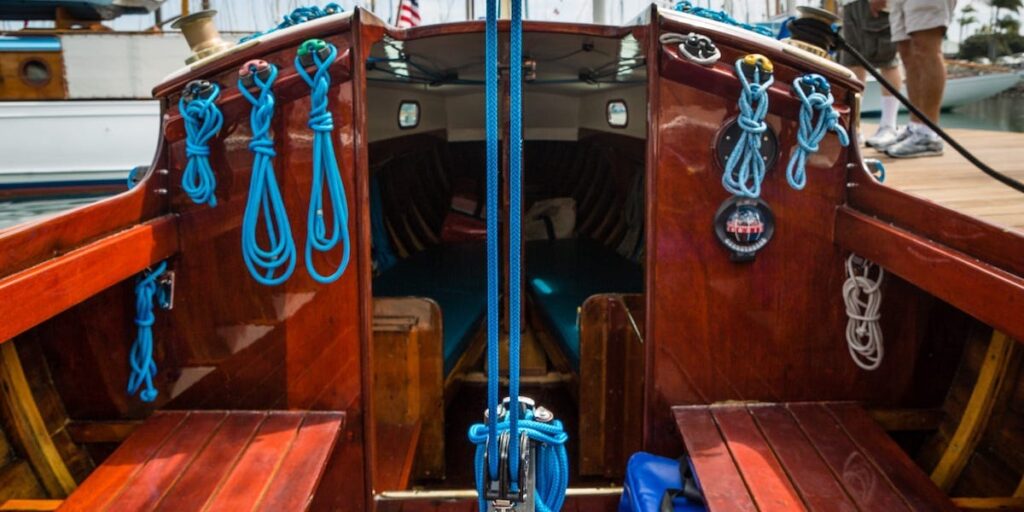
- How much work is this thing going to be?
A wooden sailboat is something to behold. It can tempt and beguile. A beautiful woody frees the imagination – you can easily see yourself, as clear as day, bounding over the waves in a 15-knot breeze, smiling with the sun glaring off your brand new aviators. Funny, you don’t imagine yourself on your hands and knees varnishing, because that will definitely be what’s happening. You should also imagine yourself cutting checks because that will also be involved. The same is so for a fiberglass fixer-upper. Yes, it’s priced to sell but do you really have time to replace that holding tank, windlass, and sticky bilge pump? If you work a lot at your job, get something turnkey, even if it’s a bit smaller than you hoped. The end goal is to sail and no one sails broken boats.
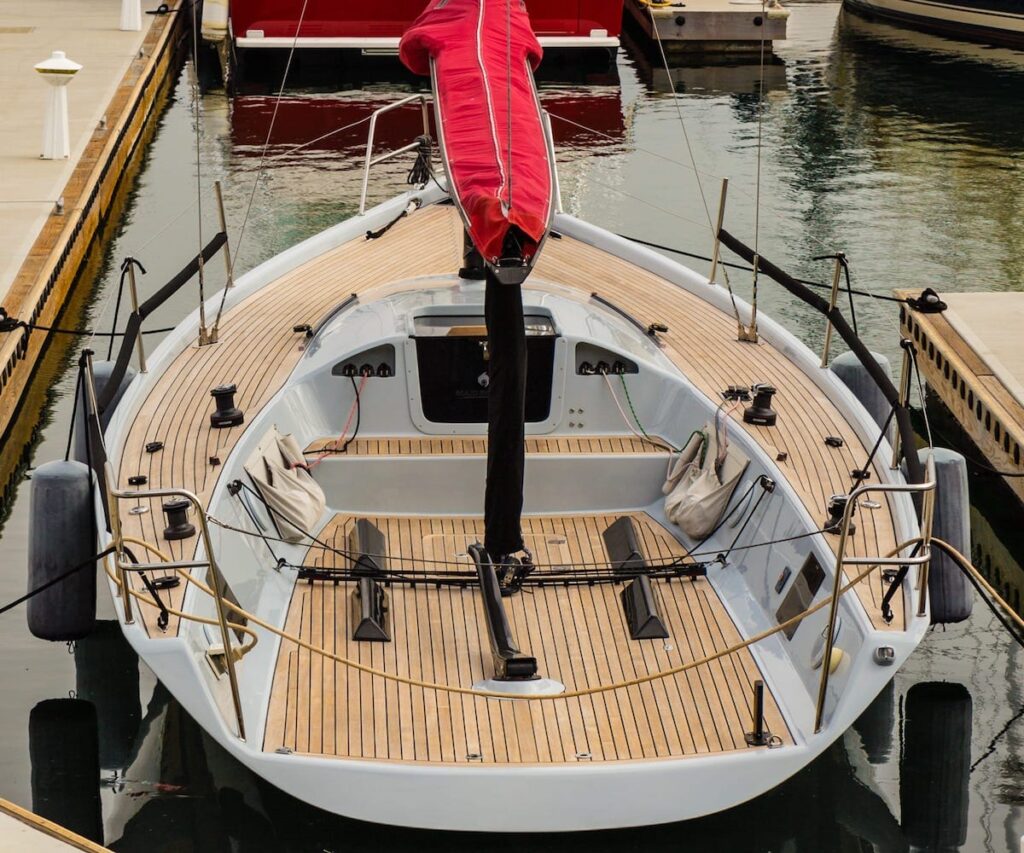
- Is it for you or you and others?
You must think of who will be part of this adventure. You want a fast boat but your partner isn’t going on this thing if there’s no place to pee. That’s a stated fact. It’s non-negotiable. And let’s assume that child of yours over there, the one that just barfed baby food on the carpet, that little one is going to get older quick and how do they fit in? Life’s a stage so to know your audience is to have great success.
- What do they really cost?
This is the dose of reality that is no fun conveying. They’re a bit more expensive than one might think but not as bad as some make it out to be. This old joke: “You know what BOAT stands for? Break out another thousand!” is dumb and it’s not really true. It can be of course, but it’s definitely very possible to sail affordably without compromising safety or fun. One way is to learn how to do stuff yourself and another is to sail in a more basic way. In fact, if this is the first boat, that’s a great approach. Get a solid boat that’s not bigger than you need without too many systems. When shopping, look around inside and outside and imagine how much things would cost, should they need replacing. Like over there…the mainsail furls into the boom. That’s cool! How much does that cost to fix if it screws up? How many wires are holding up this rig? Will I need a diver? How much will that be? Do I know how to change the oil on that diesel? Should there be an issue, what on this boat will require me to call a professional? If you are on a budget, find a solid bare-bones boat, (maybe with an outboard?) that will train you for boats to come while having a great time learning and sailing.
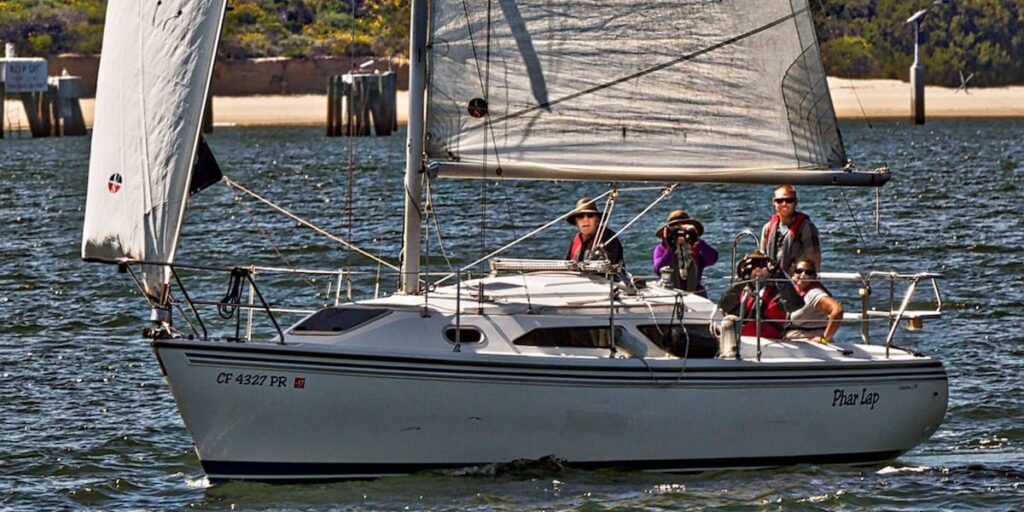
- Where am I going?
We’ve said this before but knowing how you will realistically use the boat is huge. You don’t need a blue-water cruiser if you daysail on a lake and you definitely shouldn’t use a frail boat if you sail on the ocean. It seems obvious, but Yachtworld can corrupt your mind! So many people spend silly amounts of money to get a boat that is just way more than they need. They call them coastal cruisers because they are built just fine for coastal sailing. What you lose in a boat’s ability to travel safely through a hurricane is made up for in maybe an extra berth and a walk-through transom. Are you going to circumnavigate? You are? You’re saying yes but shaking your head no…I don’t understand. You want to but you’re not going to? Okay, got it. Get the solid Catalina 30 and we’ll figure it out when you’re ready to quit your job and sail away. Until then, you and your family are going to have a blast on that boat.

